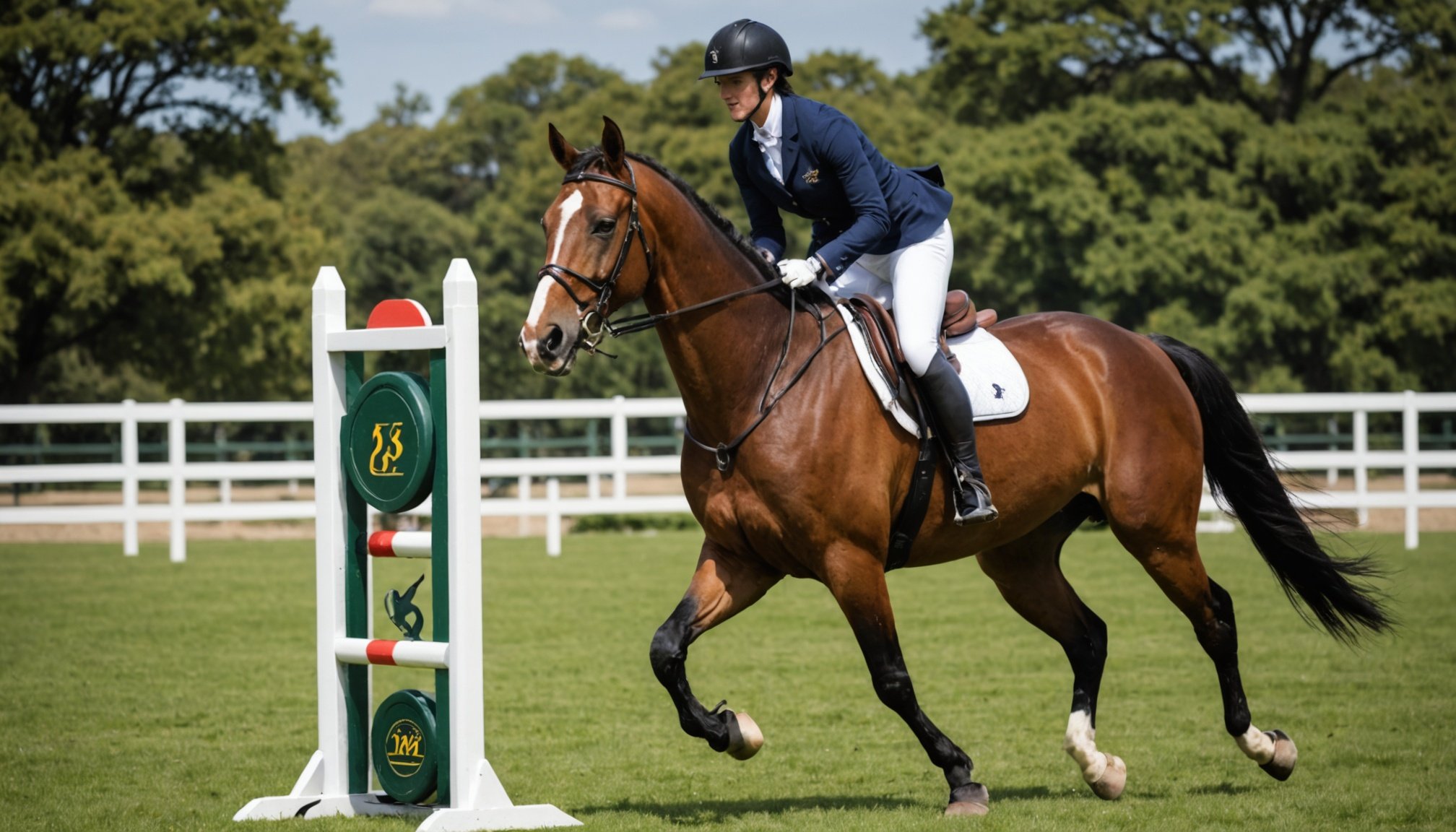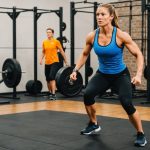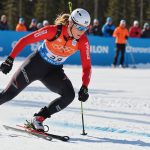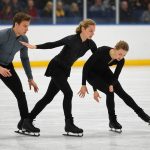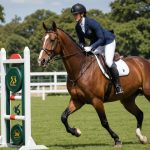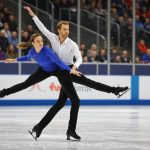The Importance of the Athlete-Horse Relationship
The athlete-horse bond is fundamental to successful equestrian performance, as it significantly enhances coordination and understanding between rider and horse. A robust relationship between the two can lead to smoother, more synchronised movements, ultimately improving competitive outcomes. Both psychological and emotional factors play a role in this partnership, impacting not only the horse’s reactions but also the athlete’s confidence and mindset.
A well-established bond can alleviate anxiety during high-stress competitions, promoting calmness and mutual trust, which are essential for complex events requiring precise communication. In turn, this eases the horse’s ability to respond effectively to the rider’s cues, leading to improved performance.
This might interest you : Achieving tranquility before the glide: key techniques for ice skaters to manage nerves and enhance performance
Case studies across various competitions reveal how successful partnerships often stem from consistent interaction and mutual respect. For instance, elite riders frequently highlight their long-term relationship benefits with their horses as pivotal to their achievements on the global stage. These partnerships underscore the profound psychological connections built over time, demonstrating the indispensable role such a bond plays in the pursuit of equestrian excellence.
Techniques to Strengthen the Bond
To foster a successful athlete-horse bond, employing effective bonding techniques is crucial. These techniques enhance training strategies and boost communication methods between horse and rider. Below are impactful approaches:
Topic to read : Maximizing biathlon success: effective strength training techniques to enhance skiing efficiency
Groundwork Exercises
Groundwork exercises lay the foundation for a strong bond. Activities such as lunging and leading help the horse understand commands while building a reliable connection. They improve body language interpretation between athlete and horse, fundamental for riding precision.
Trust-Building Activities
Developing trust involves consistent and patient interaction. Trust-building activities include obstacle courses and calm exploration rides, reinforcing the horse’s confidence in the rider’s signals. Such practices encourage the horse to remain relaxed under competition pressure.
Positive Reinforcement Approaches
Utilising positive reinforcement cements the athlete-horse relationship. Reward-based training, using treats or verbal praise, motivates the horse and nurtures cooperation. It profoundly affects the horse’s willingness to engage in tasks and respond to subtle cues.
Employing these training strategies not only enhances equestrian partnerships but also infuses confidence into competitive performances, fostering long-term relationship benefits.
Psychological Aspects of Equestrian Training
Understanding the mental conditioning required in equestrian sports is vital for enhancing both athlete and horse performance. The athlete’s mindset significantly influences their ability to communicate effectively with their horse, improving synchronization and reducing errors during competitions. A positive mental state can be the difference between success and failure.
To overcome anxiety and fear in high-pressure environments, athletes can utilize strategies such as visualization techniques and breathing exercises. These methods help maintain focus and calmness, which can improve performance under stress. Additionally, establishing routines before competitions can foster confidence and minimize nerves.
Psychological wellness is equally essential for horses, as they can sense and react to their rider’s emotions. Ensuring that the horse remains calm and responsive requires consistent interaction and mutual support between the horse and athlete. Creating a stable emotional environment is crucial for optimal equestrian performance.
Investing time in both physical and mental health for athletes and horses can lead to tangible improvements in competition outcomes. Emphasising mental conditioning strengthens the athlete’s mindset, fostering resilience and trust within the duo, ultimately enhancing the mentally conditioned partnership in equestrian pursuits.
Holistic Approaches to Equestrian Excellence
Achieving equestrian excellence requires an understanding of the holistic interplay between physical and mental health. Addressing both aspects ensures comprehensive well-being practices that benefit both athlete and horse.
Nutritional Considerations
Proper nutrition forms the foundation of a strong holistic training regimen. For horses, a balanced diet rich in vitamins and minerals enhances energy levels and supports recovery. Riders also must prioritize nutrients supporting stamina and focus, ensuring peak physical and mental health.
Physical Fitness Routines
A tailored fitness routine elevates performance by boosting endurance and agility. Horses benefit from structured exercise to enhance muscle tone and flexibility. Similarly, athletes should engage in cross-training activities, such as swimming and yoga, enhancing cardiovascular health and balance.
Emotional Well-Being Practices
Emotional well-being is pivotal in maintaining a harmonious athlete-horse bond. Techniques like mindfulness and relaxing routines help alleviate stress in both horse and rider. Regularly including calming activities fosters a trusting and responsive partnership essential for excelling in competitions.
Implementing these well-being practices not only nurtures the athlete-horse relationship but also ensures sustained and enriched performance in the demanding world of equestrian sports.
Expert Insights and Success Stories
In equestrian realms, expert advice provides invaluable guidance, highlighting how powerful successful partnerships elevate performance. Renowned trainers often emphasize consistency in interaction and innovative training strategies to foster these enduring bonds.
Top equestrian psychologists assert that understanding the psychological dynamics between horse and rider is key. Enhancing the athlete-horse bond through empathy and shared experiences can lead to exceptional performance improvement. For instance, Olympic riders attribute their success to maintaining an equilibrium between emotional connection and strategic training.
Insights from seasoned experts reinforce that building trust takes time and dedication. Case studies reveal how athletes, after meticulously nurturing their relationships, triumph in high-stakes competitions. Compelling stories showcase those who overcame missed cues and regained trust, underlining the resilience needed for top-tier performance.
Moreover, lessons from failures teach crucial aspects of resilience. Many successful partnerships have surged forward by learning from errors and adapting techniques to better suit individual pairings. Analyzing these narratives provides depth and motivation, ensuring that both aspiring and seasoned equestrians recognize the value of a well-rounded, harmonious partnership.
Practical Applications and Product Recommendations
In the quest for equestrian excellence, leveraging the right training tools and products is paramount for performance enhancement. Identifying key resources can make a substantial difference in athlete-horse rapport.
Recommended Training Tools
Proper training tools are crucial in fostering a robust athlete-horse relationship. Lunging aids facilitate communication, aligning horse and rider through consistent cues. Ground poles are another fantastic tool, enhancing rhythm and precision. A well-equipped training toolkit empowers athletes to reinforce communication methods effectively.
Performance Enhancing Products
Select performance-enhancing products enhance both physical endurance and mental focus. Top-rated saddles and bridles that ensure comfort can greatly improve horse response, doubling as safety measures against pressure-related discomfort. Innovative products like gel pads relieve tension, promoting optimal riding experiences.
Resources for Further Learning
Expanding knowledge through diverse resources enriches the athlete-horse bond. Books like “The Principles of Riding” cover foundational techniques for improved equestrian performance. Seminars led by top equestrian psychologists offer insights into managing anxieties and nurturing relationships. Staying informed can align training strategies with the latest advancements, ensuring both athlete and horse reach their full potential.

